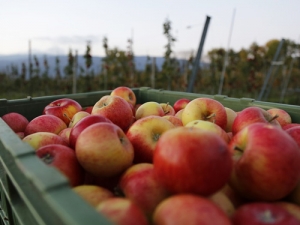There's the last of the summerfruit is to be harvested, but everyone's tired – bringing a heightened risk of accidents in growing operations.
Injury rates in the horticulture sector soar during the main growing season and growers are being reminded to keep a close eye on managing health and safety.
Statistics from ACC and WorkSafe reveal injury rates begin climbing sharply in January and peak between February and April. Last year alone, one hundred and twenty-four people were severely injured in horticulture, with an additional 1,173 suffering less severe injuries.
The most common cause of injuries is falls from height, including from ladders, stepladders and trees. Other causes of severe injury and death include being struck by a moving cherry-picker, catching limbs in machinery and vehicles touching power cables.
Al McCone, WorkSafe's agriculture programme manager, says harvesting of fruit crops at height, fatigue and the large influx of seasonal workers, (many with little understanding of safe work practices and some with English as a second language) all contribute to the significant spike in injuries.
Although horticulture has a lower incidence of accidents than pastoral agriculture, McCone says the injury rates at this time of the year underline the need for growers to take care during busy times.
"I think there is greater understanding in the horticulture sector about the basics of keeping people safe because horticulturalists are more familiar with systems, audits and policies through involvement with programmes such as Global GAP and through being more closely involved with the import and export process," says McCone.
"However this sharp seasonal increase suggests growers need to review how effective their health and systems are during their busiest times. By identifying potential risks in a growing operation, putting in place a plan to manage those, involving staff in the process and communicating the plan to them, growers can significantly reduce the risk of accidents – and boost productivity due to fewer lost hours as a result of injuries.
"Before beginning any task, it's a good idea to run through what will be involved and what the risks might be – for instance, is there sufficient clearance to move the cherry picker under power lines? Or, who else is working in the area where you need to use the tractor.
"It's also worth demonstrating to people how to do things, get them to practice things like good lifting and picking techniques, and make sure they eat proper meals, stay hydrated and don't get too fatigued.
"These simple steps will go a long way to keep everyone safe. By improving safety, growers can improve their bottom line."











